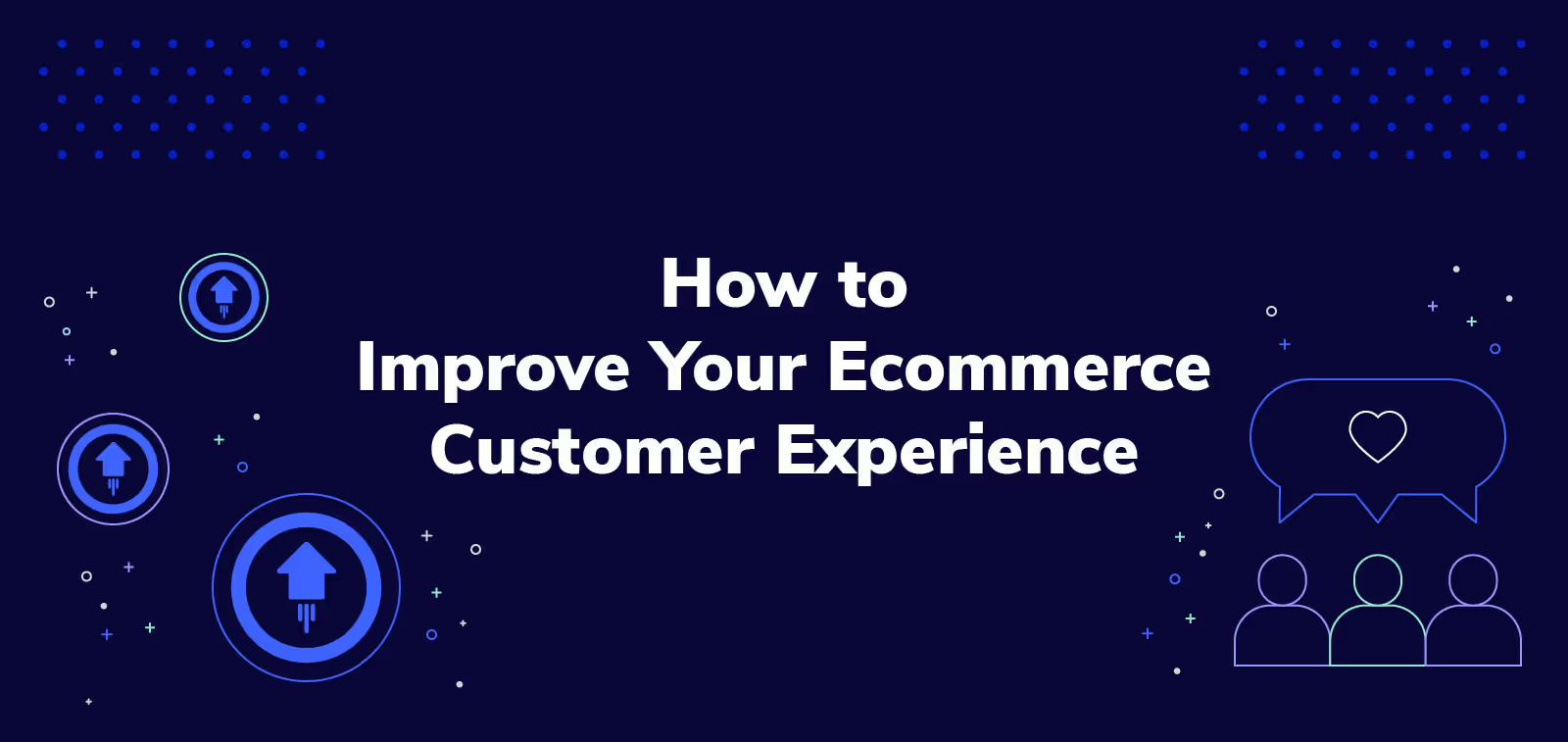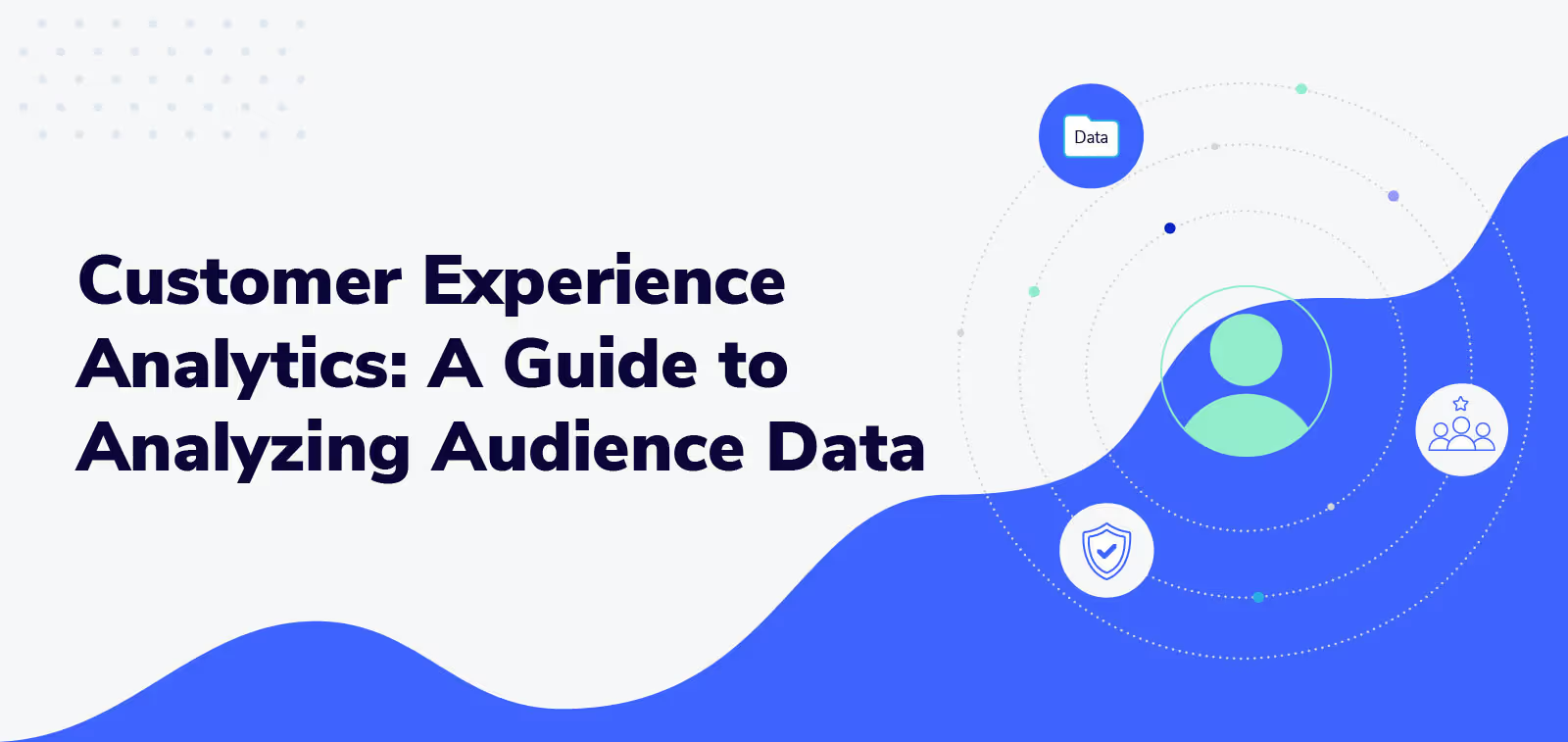Customer Experience Specialist: How to Know If You Need to Hire One

Risk is a part of life, whether it’s as intense as going on a shark tour or as mundane as driving your car to work. Most of the time, you have no problems, but on other rare occasions, you might have a terrible experience.
In ecommerce, your customer risks having a bad experience when they make a purchase. The product could be late or of bad quality, or any number of other issues could arise. The reality is that you can't prevent every bad experience — but you can do your best to make them very rare.
One way to reduce the risk of a bad experience is to hire a customer experience specialist. But there are other options. While hiring a customer experience specialist could be the right move for your business, you may want to consider the alternatives we explore below, too.
Whether you decide to hire a CX specialist should be based on how you answer two key questions:
"Can we more affordably improve/protect CX in other ways?"
and
"How can we build a customer-centric culture in our organization long term?"
What is a customer experience specialist?
A customer experience specialist champions the buyer-centric experience within a business.
The goal of the role is to make sure that someone takes ownership of improving the experience customers have when they interact with the company.
A good CX specialist must be able to collaborate effectively across teams. The goal is to inventory all touchpoints and make sure the customer has a positive experience at each of them.
For example, a CX specialist might work with product design and marketing to make sure that all of the benefits of a product are clearly communicated on the product page of the website. Customers benefit because they can immediately understand the features of the product and will avoid disappointment when the product is delivered; the website helps set appropriate expectations.
The core competencies expected of a CX specialist center on analysis and communication skills. Within analysis, the requirements usually include tracking CX metrics, interpreting customer feedback, mapping the customer journey, being familiar with the CRM, and using all customer interactions as a source of customer information.
On top of analytical skills, communication skills are needed to keep stakeholders in different roles (e.g., product development, marketing, sales, web developers) aligned with CX goals. Such goals could include reducing the customer effort score (CES) for particular shopping activities or boosting customer satisfaction (CSAT).
Customer experience specialists also need to communicate the findings of their analysis and the changes necessary to meet customer needs. An ideal customer experience specialist combines interpersonal skills with the problem-solving skills needed to succeed in a fast-paced environment.
Why hire a customer experience specialist
With customer experience as a key differentiator, it makes sense to consider if hiring a professional to oversee this aspect of the business could benefit your company.
Reasons to hire a customer experience specialist include:
- Proactively improving the customer experience. Without a CX specialist, CX efforts can be reactive. Because there's less time available to spend on CX projects, businesses may find they’re only fixing CX issues when something is broken. Instead, they should be getting ahead on any issues, optimizing for better CX, and preventing problems before they emerge.
- Preventing CX from falling through the cracks during expansion. As businesses grow, each team member becomes busier, creating the need to specialize for greater efficiency. However, while increased specialization is necessary, teams can lose sight of areas that cut across departments — like customer experience. A CX specialist or manager is hired to make sure that each sub-team does its part and a consistent CX is maintained across all touchpoints.
- Having someone accountable for CX. Hiring a CX specialist means you’ll have someone who is accountable for CX. Because action is more likely to be taken when someone is accountable, you may find more CX improvements being made through a range of initiatives — for example, pushing for user interface improvements to the website or ensuring a proper customer feedback mechanism is in place.
What to include in a customer experience specialist job description
Before sending a job alert, be clear on the requirements. Hiring for this role is a big commitment — whether you're looking for a high school graduate or someone with a bachelor's degree. After all, even a modest salary comes with a price tag in the tens of thousands of dollars. When candidates and the team are aligned on expectations, you're likely to secure a higher ROI. Responsibilities will be similar for full-time and part-time positions, as the skills and certifications required to complete the necessary tasks won't change.
Your job description should include:
- The salary — typically $56-68k, depending on experience.
- A clear statement in all job postings that this isn't a customer support specialist role. Give examples of tasks like customer journey analysis to differentiate the position and save your human resources department time on reviewing applications. Many employers substitute UX for CX to help differentiate the roles’ responsibilities.
- An emphasis that interpersonal skills are not a nice-to-have. Analysis is important, but so are communicating its findings and keeping team members aligned on CX. No part of the skill set is an afterthought.
Why you might not need to hire a CX specialist
Hiring is a big commitment. While it may be the right thing to do, it's reasonable to consider all your options. While right for some businesses, hiring a CX specialist might not make sense for your business.
Reasons to hold off hiring a CX specialist include:
- You're really looking for a customer support agent. Sometimes, the two roles get confused. A support agent listens to customer inquiries, handles customer issues, takes phone calls, may work in a call center, and tries to ensure customer satisfaction in an outward-facing role. If you want someone to do those things, don't hire a CX specialist; hire a support specialist.
- You have the capacity to distribute the responsibilities of a CX specialist among your team members. This can save money, given the role’s salary expectations. However, much of this data conflates customer support specialists and CX specialists, and businesses should always tailor salaries to the precise responsibilities of the particular role being created.
- You want to cultivate a buyer-centric culture at your company. It's not one person's job (and so nobody gets to say, "not my job"). It's everyone's responsibility to think of customer care and the customer relationship. That applies to anyone who can affect the experience of the customer, from the social media team to product and account management.
Always remember that even if you choose not to hire a CX specialist, you will need to take customer experience into account in some way — for example, by providing proper CX documentation and guidance to all departments and bringing in tools that can support CX.
Support your CX efforts with the right tools
Ultimately, whether or not you decide to hire a CX specialist, CX is still an area you need to prioritize in modern ecommerce. Implement new tools to make sure your customers have the best experience possible:
- Use tools like Hotjar to help identify parts of your site that users are struggling with. Heatmaps can indicate problem areas on each page where users spend the most time.
- Customers hate having to re-explain their issues to multiple support agents. Tools like Zendesk give your support team access to customer information from every touchpoint, meaning customers spend less time explaining their issues and get them resolved faster.
- More businesses are realizing that the post-purchase experience is a crucial part of CX. As a result, they're turning to value-added services like Extend. Extend offers merchants a way to offer product protection to customers quickly and easily. With Extend, 95% of claims are processed within minutes. Schedule a demo today to see how Extend can support your customer experience efforts.

Aaron Sullivan is senior content marketing manager at Extend. He specializes in writing about e-commerce, finance, entertainment, and beer.
.svg)






























